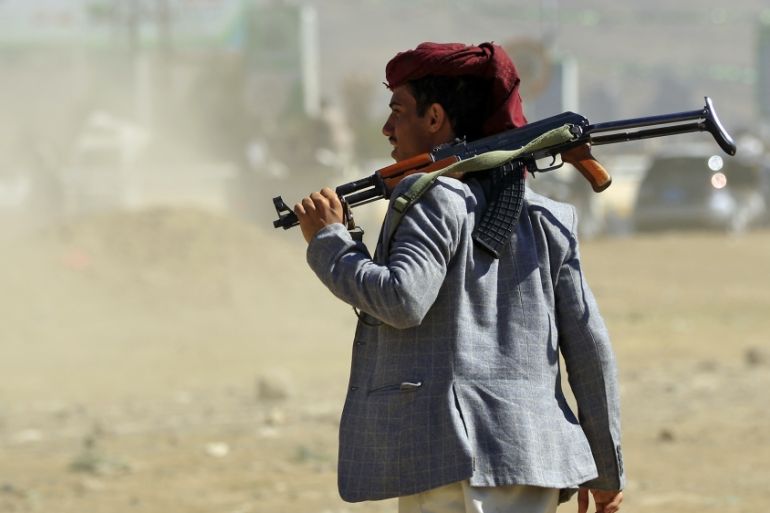Yemen needs ‘substantial progress’ to further peace: UN envoy
Both the Houthis and government loyalists have violated a fragile ceasefire agreement, though it still largely holds.

United Nations Special Envoy for Yemen Martin Griffiths warned on Wednesday that “substantial progress” is needed to advance peace efforts in Yemen before new talks can be held on ending the four-year devastating war.
Addressing the UN Security Council, Griffiths said he was still “hopeful” that negotiations would follow on a ceasefire deal reached last month in Sweden will be held “in the near future”.
Keep reading
list of 4 itemsWhy is Israel forcing the evacuation of part of Rafah, Gaza’s last refuge?
‘Yemen at a crossroads’: Nearly 200 aid groups issue urgent funding appeal
Baby girl rescued from mother’s womb dies
The Saudi-backed government and Houthi rebels agreed during talks in Rimbo, Sweden, to a ceasefire in Hodeidah, the rebel-held port city that is a key entry point for humanitarian aid to the country.
Yemen has been in a state of war since 2014, when the Houthis overran much of the country, including the capital Sanaa, where they toppled the Western-backed government of President Abd-Rabbu Mansour Hadi.
The ceasefire breakthrough buoyed hopes of an end to the conflict, but the envoy’s statement underscored that the diplomatic gains towards peace were fragile.
|
|
“Both sides have largely adhered to the ceasefire and there has been a significant decrease in hostilities,” Griffiths told the council. He went on to note some “unfortunate” examples of violence, “including in Hodeidah city” though it was “limited”.
Talks are ongoing regarding redeployment of forces from Hodeidah, providing security in the city and opening up access routes to allow humanitarian convoys to reach millions in dire need of food aid, he added.
“It is my view, and it is shared by the leadership of both parties, but also others, that substantial progress, particularly on Hodeidah of course, is something that we would like to see before we reconvene the next consultations,” said Griffiths.
Hard pill to swallow
Progress in war-ravaged Yemen is “bringing some hope but not really yet changing things on the ground,” Al Jazeera’s James Bays, reporting from the UN in New York, said.
Bays said talks at the UN acknowledged that both sides of the conflict “need to go beyond the initial deal that was reached … to a lasting” agreement.
“That is going to be, politically, very difficult for those parties involved to swallow,” Bays said.
The United Nations is working to schedule a new round of talks, possibly in Kuwait, to build on the Rimbo agreement and advance towards a final deal to end the conflict.
![Houthi fighters have shown support for ongoing talks in Sweden [File: Hani Mohammed/AP Photo]](/wp-content/uploads/2019/01/0c4d9065feae46aca41290e93fbaea11_18.jpeg)
The war between the Houthis and troops loyal to the government escalated in March 2015, when President Hadi fled to Saudi Arabia following the rebel takeover of Sanaa.
Soon, a devastating military campaign was launched by a Saudi-led coalition in support of Hadi’s exiled government.
The conflict has unleashed the world’s worst humanitarian crisis, according to the UN, which says 80 percent of the population – 24 million people – are in need of aid.
Nearly 10 million people are just a step away from famine, UN aid chief Mark Lowcock told the council.
The Security Council is considering the creation of a new observer mission to Yemen to monitor the ceasefire in Hodeidah, oversee the pullback of forces and allow the delivery of humanitarian aid.
UN Secretary-General Antonio Guterres has proposed the deployment of up to 75 observers to Yemen for an initial period of six months to shore up the ceasefire while talks on a broader peace deal are held.